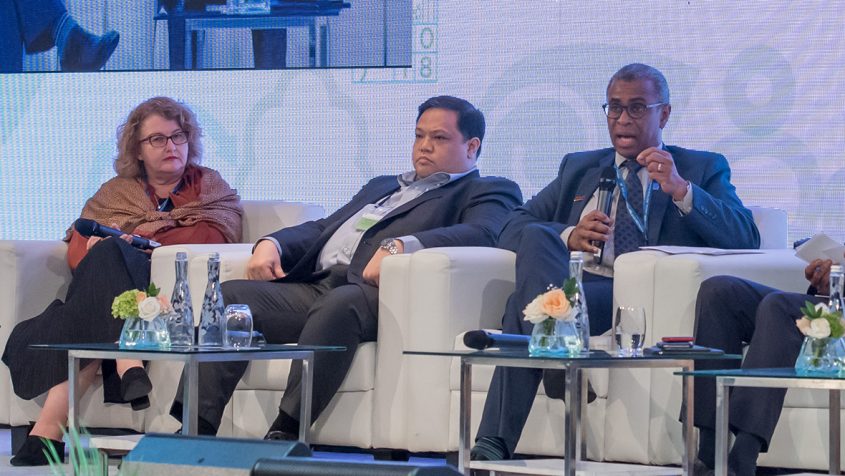
We need a change in mindset to get the money flowing, UN Chief Economist tells infrastructure forum
A major shift in the way we present public projects to private investors could unlock the trillions of dollars needed to build resilient, sustainable infrastructure and achieve the Sustainable Development Goals (SDGs), Assistant-Secretary-General and Chief Economist at UN DESA, Elliott Harris, said on Saturday.
Speaking at the third edition of the Global Infrastructure Forum in Bali, Indonesia, Mr. Harris stressed that the absence of investible projects remains a major constraint both in developed and developing countries. “I do think we have to be aware of what is needed if we want to present projects that could attract private finance,” he said, adding that “technical capacity building assistance has to happen”.
Mr. Harris underscored that infrastructure projects in countries are often too small to attract financing from large institutional investors, such as pension funds, and that innovative ways of pooling various projects together are necessary to unlock private capital flows. Regulation should also make clear that the responsibility of institutional investors is to consider all factors (including social and environmental impact of projects) that drive the long-term performance of investments.
The infrastructure needs across the world are staggering. Close to 1 billion people still lack access to electricity, while safe drinking water is inaccessible to nearly 3 in 10 people. New technologies and approaches, such as smart transport systems and innovative climate finance, can help to fill the infrastructure gap. They can also help build infrastructure that can withstand natural disasters, aggravated by climate change.
The Global Infrastructure Forum, led by multilateral development banks, was established by the Addis Ababa Action Agenda to improve coordination and highlight opportunities for investment and cooperation on sustainable infrastructure. This year’s edition was held under the theme “Unlocking inclusive, resilient, and sustainable technology-driven infrastructure.”
The heads of the leading multilateral development banks participating in the Forum reaffirmed their commitment to work together to deliver infrastructure that is resilient, inclusive, and sustainable. The important role of technology in achieving this goal was at the heart of discussions.
In an outcome statement, the multilateral development banks agreed on the priorities for their joint efforts on infrastructure:
• Increase technical assistance and advisory services for knowledge creation and knowledge transfer;
• Disseminate knowledge through collaborative events that support the delivery of bankable projects;
• Contribute to delivering sustainable infrastructure through the Multilateral Development Banks Information Cooperation Platform;
• Mobilize sustainable finance at scale;
• Support sustainable public procurement;
• Identify infrastructure and capacity gaps, particularly in least-developed countries, landlocked developing countries, and small island developing states and African countries.
The multilateral development banks also used the outcome statement to express their appreciation of the convening power of the UN in support of delivering inclusive, resilient, and sustainable technology-driven infrastructure. The outcomes of the GI Forum will be reported to UN member states through the Financing for Development Forum.
The Forum brought private sector investors together with representatives from the United Nations and leaders from the African Development Bank, Asian Development Bank, Asian Infrastructure Investment Bank, European Bank for Reconstruction and Development, European Investment Bank, Inter-American Development Bank, International Finance Corporation, Islamic Development Bank, New Development Bank, and the World Bank.

Follow Us